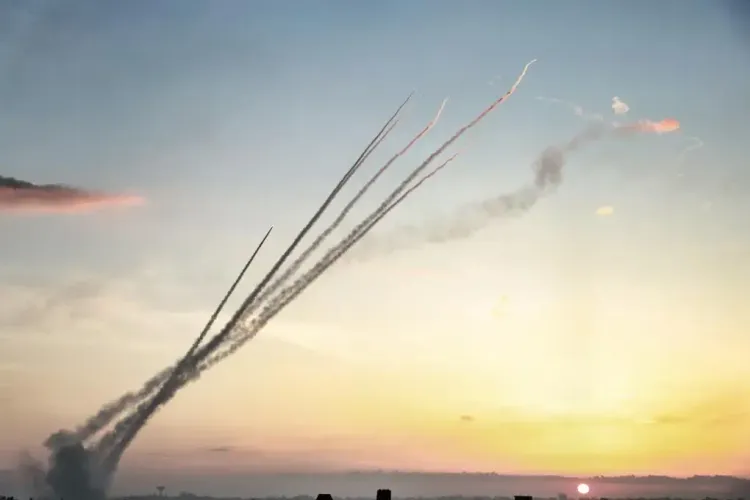How Did the Israeli Stock Market Reach a 52-Week High Amid Iranian Missile Strikes?

Synopsis
Key Takeaways
- The Tel Aviv Stock Exchange reached a 52-week high amidst Iranian missile strikes.
- Investor confidence remains strong despite geopolitical tensions.
- The TA-125 Index has seen significant growth since the start of the conflict.
- Israeli leadership has vowed to respond strongly to Iranian aggression.
- The situation highlights the resilience of the Israeli economy in challenging times.
New Delhi, June 19 (NationPress) In a remarkable show of investor confidence, the Tel Aviv Stock Exchange soared to a 52-week high on Thursday, despite Iran's latest missile barrage, which notably targeted the stock exchange building itself.
Local media in Israel reported that Iran launched 25 missiles during a new wave of aggression early Thursday, damaging various sites, including the Tel Aviv Stock Exchange building.
Despite this direct strike, the Israeli stock market exhibited remarkable resilience, with investors remaining steadfast amid rising tensions between Iran and Israel.
The Tel Aviv All Share Index climbed by 0.5 percent to reach 2,574, marking its highest point in the past year.
Other significant indices, such as the TA-35 and TA-125, also showed positive movement, each reaching their respective 52-week highs of 2,810 and 2,850.
The TA-125 Index, which includes the largest companies on the Israeli stock exchange, has witnessed substantial growth since hostilities escalated between Iran and Israel on June 13.
The index has surged nearly 5 percent so far in June, following rises of 6.55 percent in May and 4.53 percent in April—demonstrating persistent market optimism in the face of geopolitical uncertainties.
Reports further indicate that the Iranian missile strikes resulted in damage to a major hospital in southern Israel.
In response, Israeli Prime Minister Benjamin Netanyahu issued a stern warning to Iran, asserting that the Islamic Republic would “pay a heavy price” for its aggression against Soroka Hospital in Beersheba.
Defence Minister Yoav Gallant confirmed that the Israeli military has been directed to escalate its operations against Iran.
Meanwhile, an Iranian ballistic missile struck Soroka Hospital in Beersheba, causing serious injuries to several patients, doctors, and staff members.
In a statement on X, the Israeli Foreign Ministry remarked, “Soroka Hospital in Beersheba—where Jews, Muslims, Christians, and Arab Bedouins receive care—was just struck by an indiscriminate Iranian ballistic missile. Israel will continue to do what is necessary to protect all its people, from all walks of life.”







